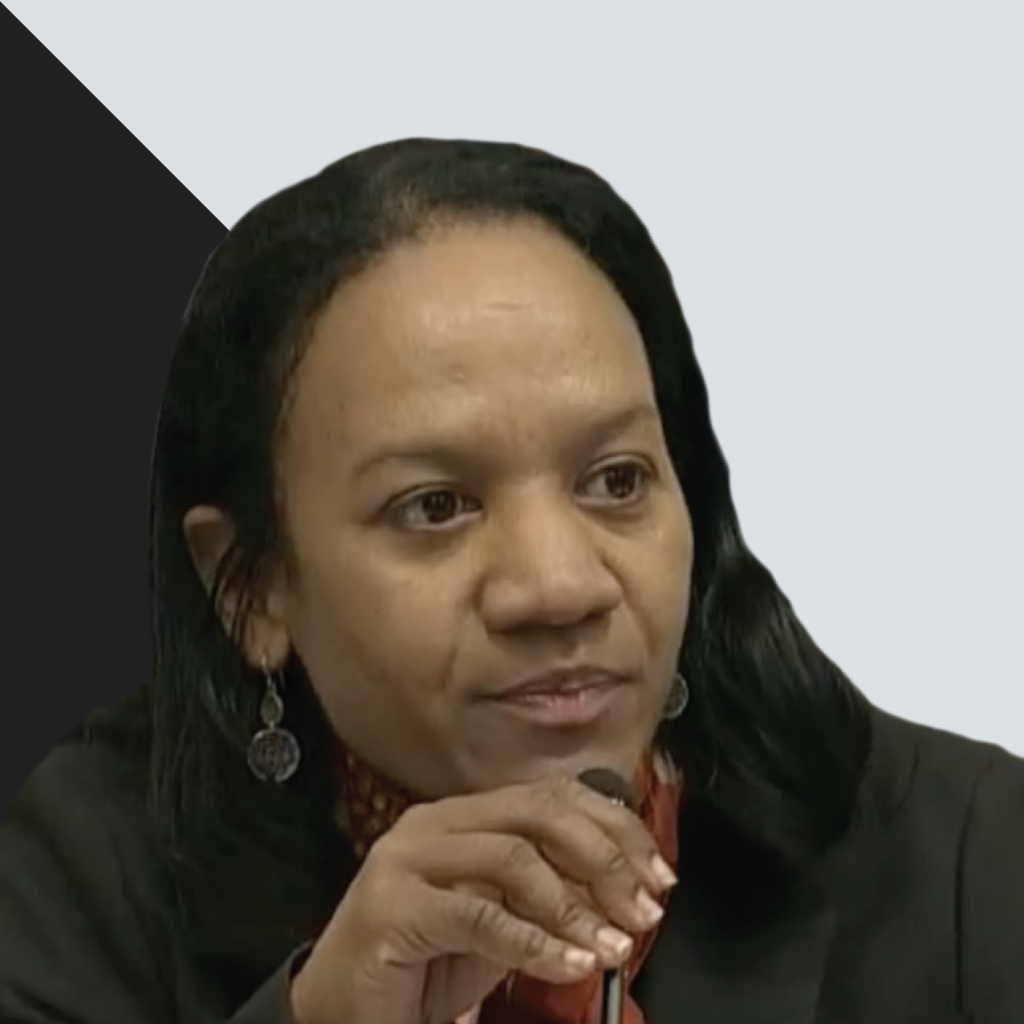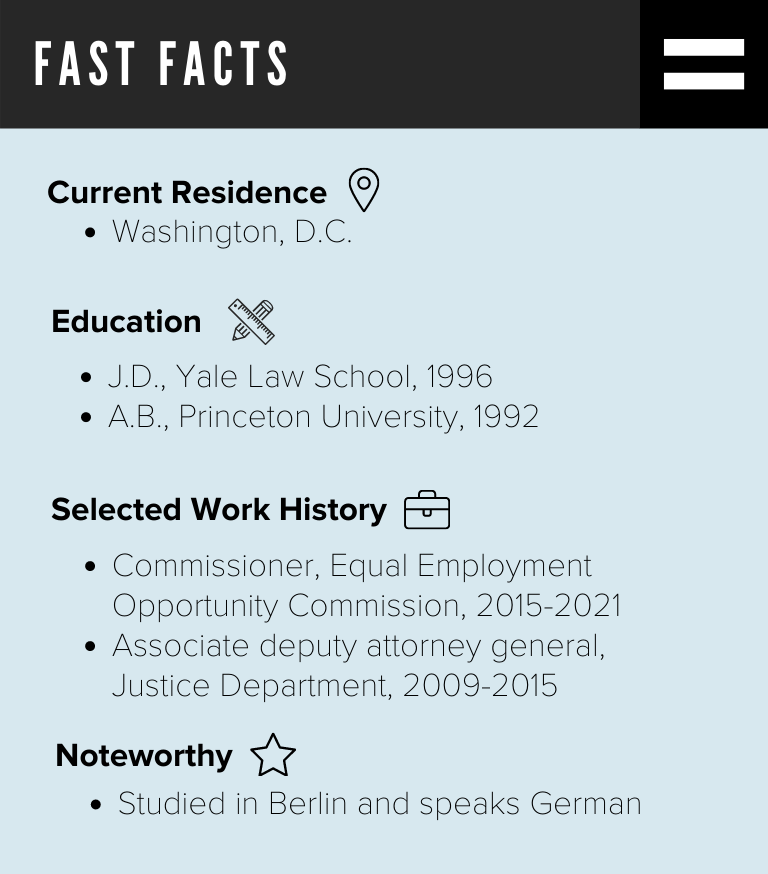Chair, Equal Employment Opportunity Commission
Fast Facts

Defender of Anti-Discrimination Policies

LEARN MORE
Vignette, a service through National Journal Research, is an essential tool for government affairs teams that need to understand the people behind the policies.
Click here to request a demo of the Vignette database, or email njvignette@nationaljournal.com to speak to someone about your access.
A constitutional and civil-rights lawyer by training, Charlotte Burrows has spent two decades creating and implementing federal antidiscrimination policies for workplaces in the executive branch and in Congress.
After clerking for a federal appeals-court judge, Burrows found her niche as a litigator in the Justice Department’s civil rights division, where she quickly rose to become deputy chief of the department and helped enforce Title VII of the Civil Rights Act of 1964.
In the early 2000s, she joined the office of Sen. Edward Kennedy as general counsel, playing a key role in crafting antidiscrimination laws such as the Lilly Ledbetter Fair Pay Act of 2009 and the Americans with Disabilities Amendments Act of 2008. That in turn led to her appointment by President Obama in 2009 as associate deputy attorney general; in that role, she prioritized voting rights and racial-justice issues, and worked on the reauthorization of the Violence Against Women Act.
Burrows has been confirmed to two terms on the EEOC, where she’s focused on harassment, pay equity, and diversity and inclusion within the workplace, specifically tailoring her efforts on Native American and minority communities.
Now as the head of the commission, she’s touting the Paycheck Fairness Act, which would strengthen policies to further address the gender pay gap.
Approach and Motivations
Excerpted from Charlotte‘s Vignette profile
Childhood experiences inspired her legal career and influenced her consensus-building approach to solving legal and policy matters
- Father’s experience in the military and as a political-science professor inspired her interest in constitutional law and gave her a greater respect for American democracy
- Believes that growing up as a middle child helped her understand the importance of negotiation and compromise, which she brings to her role on the EEOC while attempting to bring stakeholders from the government, business community, and trade unions together; stated that she always attempts to find common ground between employers and workers when litigating a case
- Maintains a low public profile but prefers to speak with women’s-focused professional groups such as Green Connections Radio and the career-resources organization InHerSight
Not a Vignette subscriber? You can purchase a digital book with in-depth profiles on everyone featured in this special report.
To learn more about Vignette, or see the platform in action, request a demo here.

